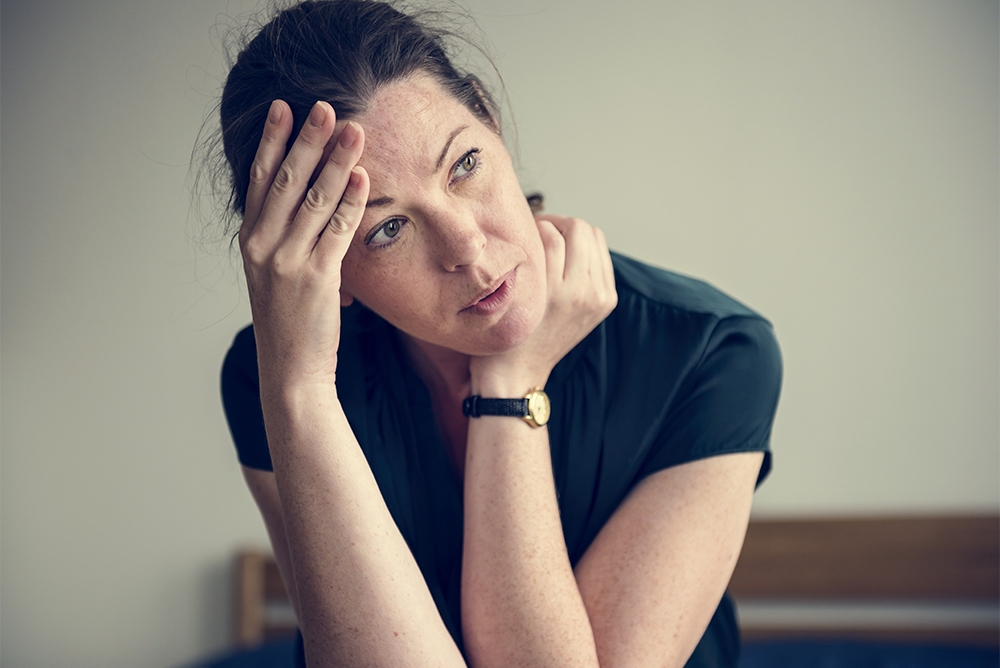Bipolar disorder is a brain disorder whereby the patient experiences unusual and significant mood changes, behaviors, energy, sleep patterns, concentration, and overall ability to meet the day’s tasks. There are three types of bipolar disorder: bipolar I, bipolar II, and cyclothymic disorder. It is estimated that approximately 4.4% of adults in the U.S. experience the disorder at some point in their lives; that is about 14,432,000 people! This disorder is usually identified and diagnosed during the teenage years or early adulthood, although an accurate diagnosis can be problematic. This is because persons in a depressive episode tend to seek treatment, but those in a manic state do not. This can lead to an incomplete picture of the issue, mistaking a depressive episode with depression. Also, bipolar can be misdiagnosed for something else. It has some similarities with other disorders that can develop along with bipolar, such as anxiety disorder, substance use disorder (SUD), or an eating disorder.
Signs and Symptoms
The main symptoms of bipolar include periods of emotional highs (mania or hypomania) and lows (depression). When individuals experience a depressive episode, they may feel sad or hopeless and lose pleasure in most activities. When their mood shifts to mania or hypomania (less extreme than mania), they may feel euphoric, full of energy, or unusually irritable. These mood swings can affect sleep, energy, activity, judgment, behavior, and the ability to think clearly.
Episodes of mood swings may occur rarely or multiple times a year. While most people will experience some emotional symptoms between episodes, some may not experience any.
There are several types of bipolar, which may include mania or hypomania and depression. Symptoms can cause unpredictable mood and behavior changes, resulting in significant distress and difficulty in life. The three types of bipolar disorder include:
- Bipolar Ⅰ disorder. Those who have bipolar Ⅰ have had at least one mani episode that may be preceded or followed by hypomania or major depressive episodes. In some cases, mania may cause a break from reality (psychosis).
- Bipolar Ⅱ disorder. Those who have bipolar Ⅱ have had at least one major depressive episode and at least one hypomanic episode but have never had a manic episode.
- Cyclothymic disorder. Individuals with cyclothymic have had at least two years – or one year in children and teenagers – of many hypomania symptoms and periods of depressive symptoms (though less severe than major depression).
Often, those with bipolar don’t even realize the change in their behavior, although it may be evident to others. Some factors that may trigger a manic or depressive episode may include stress, sleep deprivation, and alcohol or drug use.
Bipolar disorder might look like this: feeling like you are super intelligent and powerful today and the next, and the next…but then feeling completely incoherent and powerless the day after that. An individual may feel like they can do anything and everything they desire all in one day, but then feel unable to do a single thing at all the next.
Causes and Risk Factors for Developing Bipolar Disorder
Like many mental health disorders, scientists agree that there are likely multiple factors contributing to a person’s probability of developing bipolar disorder. They have some ideas on what those factors are, such as specific genes that may be partially responsible. Having someone in the family, like a parent or sibling with bipolar, can also increase one’s chances of developing the disorder.
How Can Bipolar Disorder Affect Everday Living?
Due to the inherent fluctuations of mood stability of bipolar disorder, significant disruptions are likely in all spheres of life, including work, home, and among social groups. Feeling incredibly high or low can create space for risky and poor decision-making. For example, if you have a depressive episode, you can succumb to a drink or two…or five. On the other hand, if you have a manic episode, you might run up your credit from spending well beyond your means. And if those slippery episodes last long enough, and the conditions are just right, you might keep feeding that pattern of drinking and spending. Over. And over. And over, again.
Unfortunately, it’s not uncommon for people who have bipolar disorder to have other mental health disorders, in addition to substance use problems. As demonstrated through epidemiological research, SUDs are very common in bipolar disorder. At least 40% of bipolar I patients maintain SUDS throughout their lifetime. Using substances while suffering from bipolar has been shown to impair overall recovery, resulting in more frequent and prolonged episodes and increased suicidal behavior. This combination complicates and delays an already challenging disorder to diagnose and can result in prolonged treatment.
It Doesn’t Have to All be Ups and Downs
Yes, bipolar is a lifelong disorder. But don’t worry: there’s good news. There are support systems out there in the world that want to help you today. Various treatment modalities can also help individuals manage bipolar disorder effectively to live a happy and healthy life.
Bipolar disorder is a lifelong illness characterized by extreme mood changes that negatively impact emotional and behavioral responses. Episodes of mania and depression tend to recur over time, and the period in between episodes is sometimes free from the constant emotional rollercoaster. But be aware: these periods might make you think everything is better. It is critical to reach out for help if you or someone you know is experiencing the symptoms of bipolar disorder. There are risks associated with the highs and lows faced during an episode, such as the potential to develop substance use disorder. If left untreated, the disorder can lead down a slippery slide of damaged relationships, loss of jobs, and the development of other mental health disorders. These risks are not uncommon. It can be scary. It can be confusing. Our experienced addiction and mental health professionals at Oceanfront Recovery are here to help you get the treatment you need and deserve. Call us today at (877) 279-1777.







